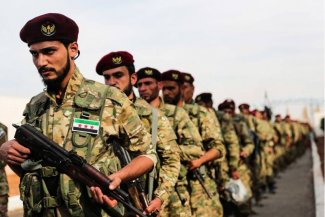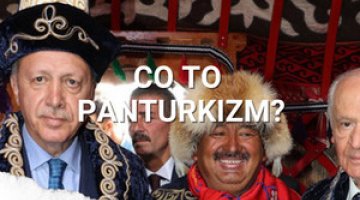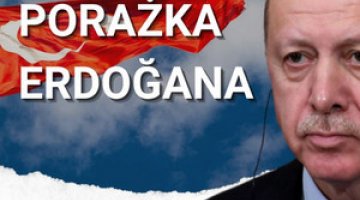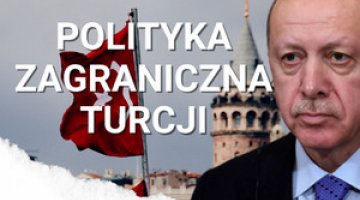Turkish intervention in Syria: a new crisis in relations between Turkey and the West

The Turkish military operation ‘Peace Spring’, launched in northern Syria on 9 October, has met with harsh criticism from the European Union and an ambivalent attitude from the United States. Brussels called on Ankara to halt the military action, and five European countries submitted a draft resolution condemning Turkey to the UN Security Council. During a meeting of EU foreign ministers on 14 October the operation was condemned (despite resistance from Hungary, among others), but a joint embargo on arms sales to Turkey was not introduced (although France, Germany, Sweden, Finland and the Netherlands unilaterally announced that they would do so). Moreover, the EU announced that it would not finance the so-called safety zones which Turkey plans to operate on the territories it has occupied. The United States sharply criticised Ankara, but at the same time it blocked a draft (together with Russia) condemning the Turkish operation during the UN Security Council vote. On 14 October, US President Donald Trump also announced an increase of customs duties on Turkish steel to 50%, and the suspension of talks on a plan to increase trade with Turkey; meanwhile the Treasury Department announced the imposition of individual sanctions on the Turkish ministers of defence, internal affairs and energy. Turkish-American talks in Ankara are scheduled for 16 October, in which US Vice President Mike Pence and US Secretary of State Mike Pompeo, among others, may participate.
Commentary
- Turkey’s launch of ‘Peace Spring’, and then the course of the operation, caused a shock in relations between Turkey and the West. Ankara's attitude towards the Syrian Kurds is immutable, and has been determined by Turkey’s attitude towards the war it has waged for over thirty years against the Kurdistan Workers’ Party (PKK). Meanwhile, the Syrian Democratic Forces (SDF), who control the north-eastern part of the country (around a third of its total territory), are mainly made up of fighters from the People's Protection Units (YPG), whom Turkey sees as the Syrian branch of the PKK. Ankara sees the existence in Syria of the Kurdish para-state (co-founded by Turkish Kurds) as an extreme threat to the cohesion of the Turkish state. Operation ‘Peace Spring’ was preceded by intensive diplomatic manoeuvres, which ended with the White House’s decision to withdraw US military contingents (numbering around a thousand people) from the YPG-controlled territories; these forces had trained the Kurds and lent them support in the fight against the Islamic State, which the US had considered to be its most serious threat in the region. Operation ‘Peace Spring’ is primarily designed to displace the Kurds a distance of 30 km from the Turkish border and establish a so-called security zone in that area, to which Turkey could relocate some of the 3.6 million Syrian refugees currently resident on its territory.
- Over recent months Turkey has presented its plan of action for Syria as being primarily a humanitarian project, not a military one. Ankara unsuccessfully sought political recognition for its project in the West, as well as financial support for the security zone, in which it would have created the necessary infrastructure. The course of the operation as conducted so far seems to indicate that it is in fact solely military in nature. The first operations by the Turkish army and its subordinate branches of the Syrian opposition, which make up the Syrian National Army, have already led to a wave of tens of thousands of refugees – mostly Kurds – fleeing to areas deep inside Syria which are not covered by the operation; some have also gone to Iraq. Sources linked to the SDF report that as many as 100,000 to 150,000 people may have been displaced. Additionally dozens of civilian casualties have been documented, as have cases of war crimes. This result, combined with the plans to relocate Syrian refugees (mostly Arabs) from Turkish territory, has led to the West perceiving the operation as an attempt at ethnic cleansing.
- The fundamental contradiction in the perceptions by Turkey and the EU of the Syrian Kurds’ situation has seriously increased tensions in the two sides’ relations. Immediately after the start of the operation, Turkish President Recep Tayyip Erdoğan reiterated his threat to withdraw from the migration agreement concluded in March 2016. In view of Ankara's determination, it may indeed respond to the harsh criticism from Brussels by discontinuing its current supervision over the movement of migrants to Europe. This opportunity could be seized by the most determined Syrians, as well as the (far more mobile) citizens of other countries (Afghanistan, Iran, Iraq) currently living in Turkey. The situation has been exacerbated by the fact that the European public openly sympathises with the Kurds, and a wave of demonstrations organised by the Kurdish diaspora and its supporters has been held in European cities. This in turn increases the pressure on both the governments of individual countries and on the EU. For Turkey, however, this is another reason to accuse the EU of ignoring the activities of the PKK, which it also regards as a terrorist organisation, on its own territory. Accordingly, it is very likely that Turkey’s verbal threats will be accompanied by its unlocking of the migratory routes to Europe, which could lead to serious political tensions within the EU.
- The catalyst for the crisis was the ambiguous attitude of the United States. Since the announcement on 6 October that US troops would withdraw from the areas of the planned Turkish operation, Washington has stated that the EU must take its share of responsibility for resolving the conflict, and also take control of the Islamic State fighters captured by the Kurds. At the same time, the United States sent out a series of contradictory messages: at first it denied that it had granted Turkey permission to carry out the military operation; then, together with Russia, it blocked the UN Security Council resolution requested by European countries. The imposition of sanctions on Turkey which Trump announced seems to have resulted from internal pressure, due to the US establishment’s support for the Kurds and its dislike of Turkey’s actions. If these sanctions are implemented, it will deepen the crisis in relations between Washington and Ankara. The sanctions could seriously undermine the Turkish economy as it struggles with recession, and strong anti-Turkish activity could seriously complicate cooperation within NATO on issues such as the programme for producing F-35s (Turkish participation in the programme was formally suspended in July, but the de facto production of components in Turkey is still ongoing), or the operation of the military base in İncirlik; in previous years its activities were halted (for example, by cutting off energy supplies), and units of the Bundeswehr were withdrawn from a base in Konya after a series of diplomatic misunderstandings in Turkey’s relations with Berlin. Such a scenario has been made more likely by Erdoğan's statements that the West has no right to tell Ankara what to do, as it does not heed Turkey’s legitimate concerns regarding its own security. His position will be reinforced by appeals from the Turkish opposition, which is demanding a tough response to the US initiatives. The deepening paralysis in cooperation within NATO could also lead to closer cooperation between Turkey and Russia.




